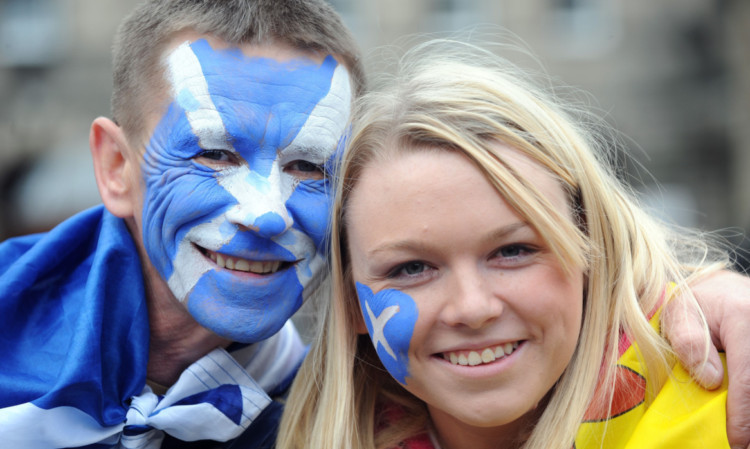Nearly two-thirds of Scotland’s population consider themselves Scottish and Scottish alone, new results from the 2011 Census have revealed.
Data revealed that 83% of the country’s population feel they have a Scottish identity, with 62% feeling Scottish only compared to 18% of people who identify themselves as Scottish and British.
Another two per cent of the population considers themselves Scottish and another identity. The census was the first to ask questions about national identity.
The proportion of Scotland’s population who are from an ethnic minority doubled between 2001 and 2011 from two to four per cent.
Scottish Government culture Secretary Fiona Hyslop said: “The census results reveal a fascinating picture of Scotland today. While our society is more multi-cultural than ever before, and our communities more ethnically and religiously diverse, people here also have a very strong sense of Scottish identity.
“While 62% of people feel Scottish only, a further 21 per cent of the population share their Scottish connection with another identity the highest claim to a resident national identity anywhere in the UK. It is especially welcome that, amongst those proud to claim a Scottish identity, are those who have chosen Scotland as their home and the census reflects in particular the increase in our Polish and Asian populations.” In England, 70 per cent had ‘any English’ national identity, in Wales 66% of people had ‘any Welsh’ identity, whereas in Northern Ireland 29 per cent said they had ‘any Northern Irish’ identity.
The findings also show that since 2001 there has been an increase of three percentage points in the number of people living in Scotland who were born outside the UK.
The census also revealed that Scotland is becoming increasingly secular, with more people as without a religion than there are members of any one specific religion.
For more on this story see Friday’s Courier or try our digital edition.
